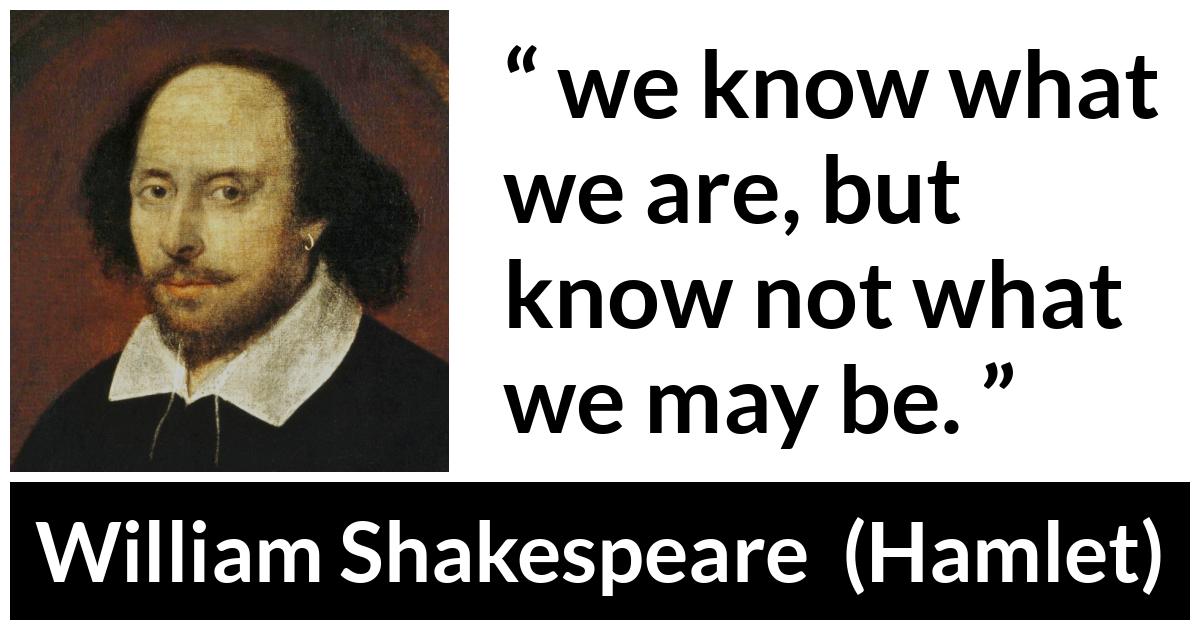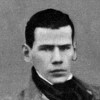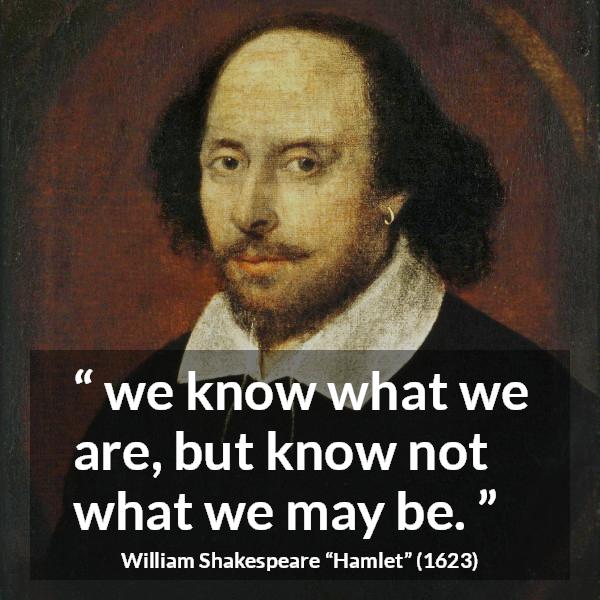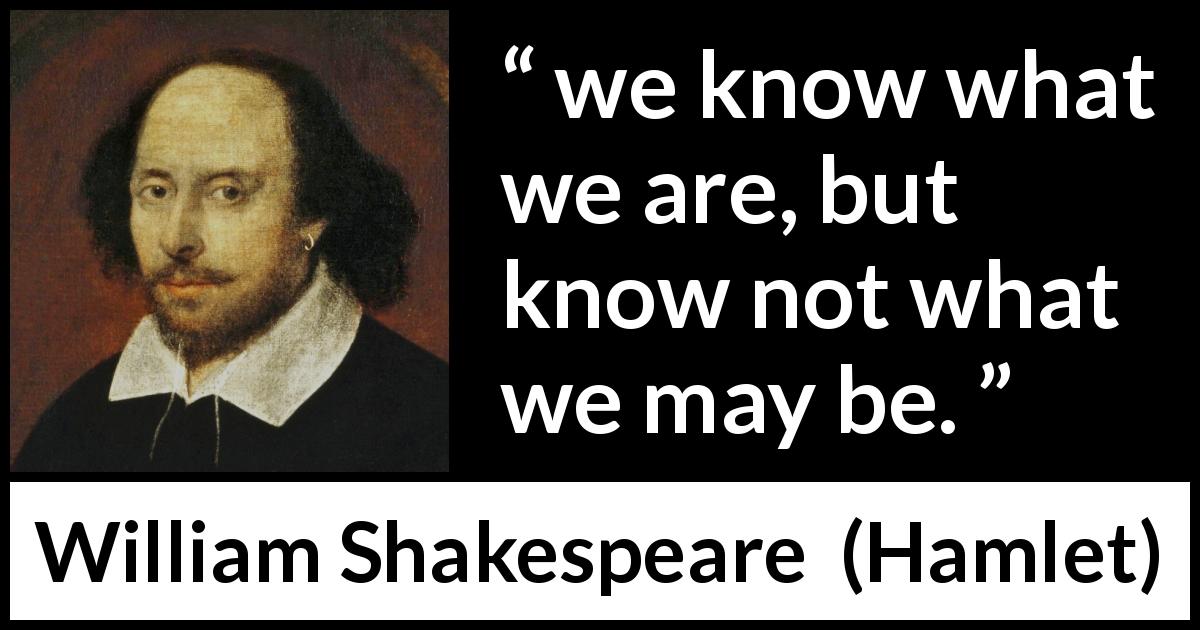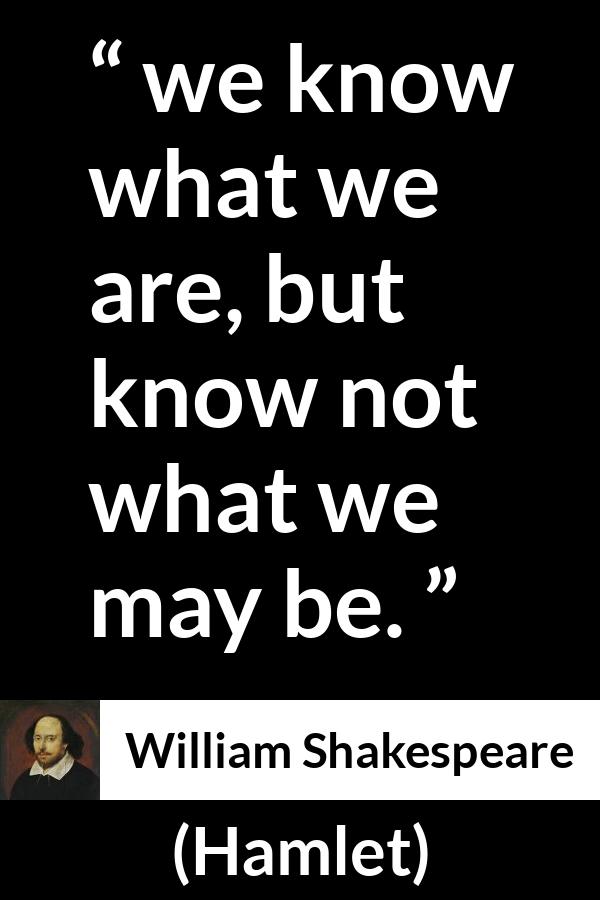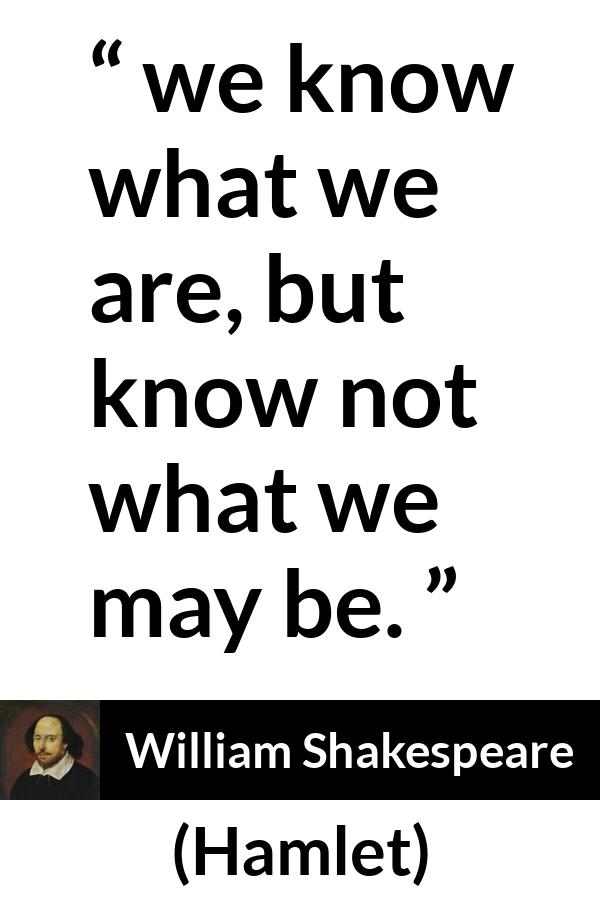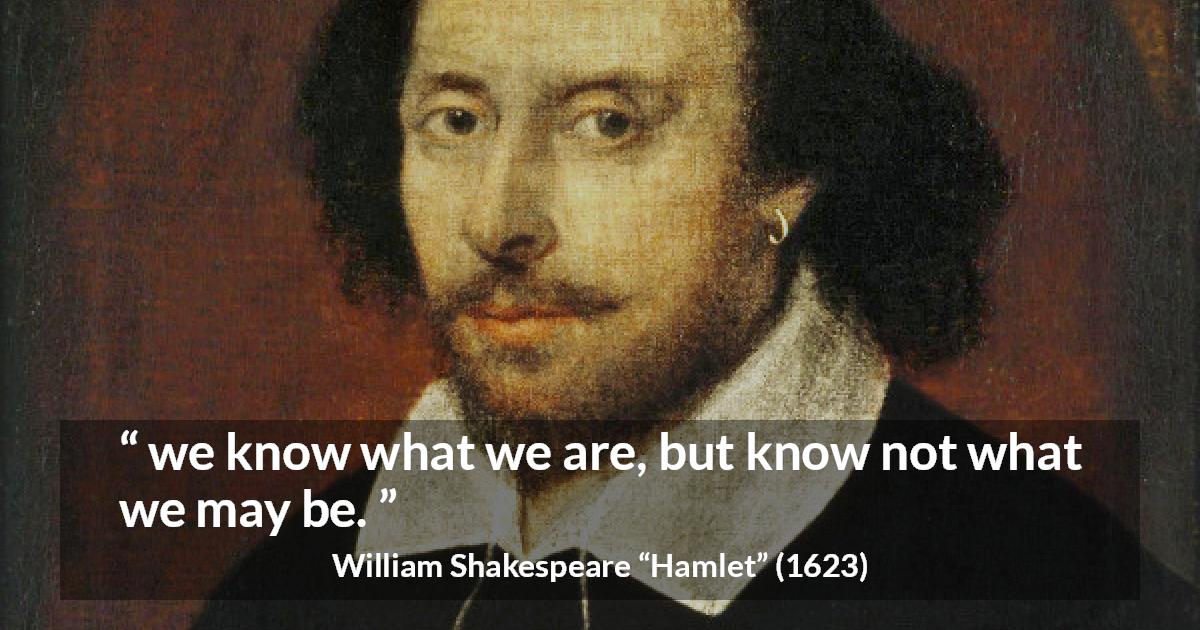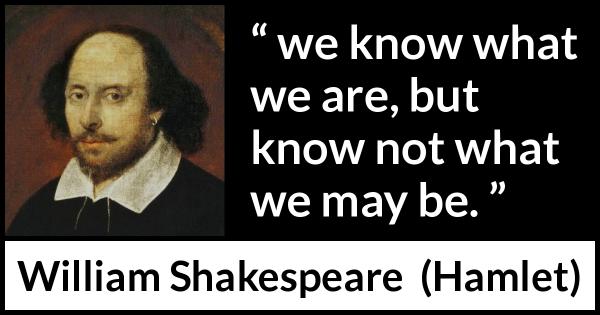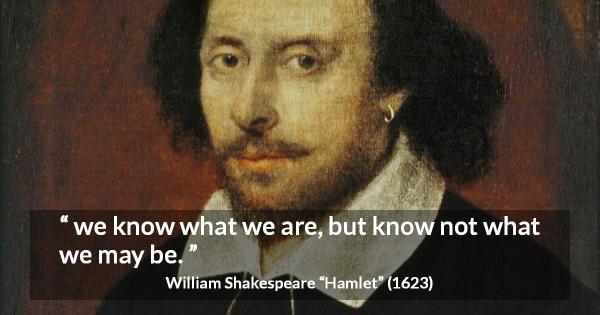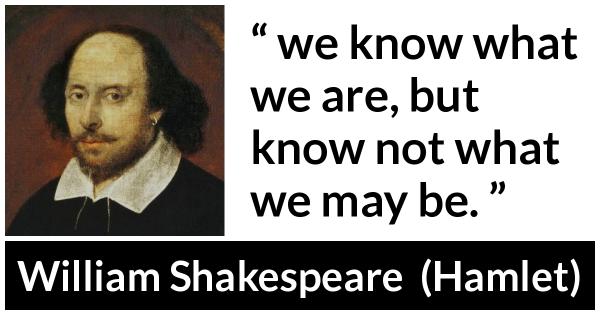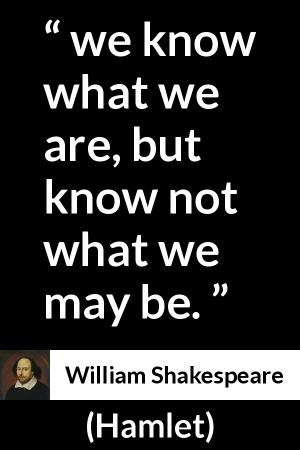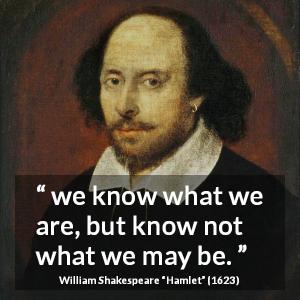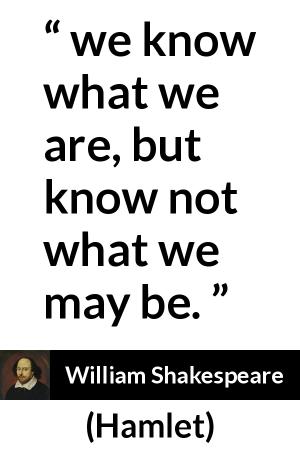“ we know what we are, but know not what we may be. ”
William Shakespeare, Hamlet (1623). copy citation
| Author | William Shakespeare |
|---|---|
| Source | Hamlet |
| Topic | knowledge self-awareness potential |
| Date | 1623 |
| Language | English |
| Reference | The Tragedy of Hamlet, Prince of Denmark, Act IV, Scene 5 |
| Note | Written between 1599 and 1602 Ophelia line |
| Weblink | http://www.gutenberg.org/files/1524/1524-h/1524-h.htm |
Context
“[Sings.]
Larded all with sweet flowers; Which bewept to the grave did go With true-love showers. King. How do you, pretty lady? OPHELIA. Well, God dild you! They say the owl was a baker's daughter. Lord, we know what we are, but know not what we may be. God be at your table!
King. Conceit upon her father. OPHELIA. Pray you, let's have no words of this; but when they ask you what it means, say you this: [Sings.]
Tomorrow is Saint Valentine's day,” source
Larded all with sweet flowers; Which bewept to the grave did go With true-love showers. King. How do you, pretty lady? OPHELIA. Well, God dild you! They say the owl was a baker's daughter. Lord, we know what we are, but know not what we may be. God be at your table!
King. Conceit upon her father. OPHELIA. Pray you, let's have no words of this; but when they ask you what it means, say you this: [Sings.]
Tomorrow is Saint Valentine's day,” source
Meaning and analysis
Kwize Master
This sentence is spoken by Ophelia as she is disoriented by Hamlet's attitude and finds herself in a fragile state of mind. She states that if we can understand what we are in the present moment, it is not possible to anticipate the future and know what we will become.
useful
useless
